What is the Best Programming Language for Mobile App Development?
 Marketing IBTI#Marketing IBTI
Marketing IBTI#Marketing IBTI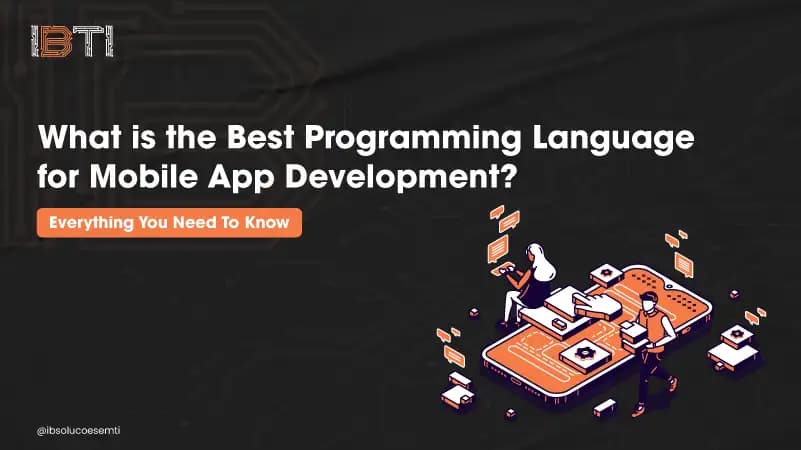
Have you ever dreamed of crafting your own mobile app? Maybe a game that takes the world by storm, a productivity tool that simplifies life, or a social platform that connects communities.
But before diving into code, a big question arises: what programming language should you choose? What is the best programming language for mobile app development?
This guide will simplify the complex landscape of programming languages for mobile app development. Whether you're a tech-savvy pro or a business owner taking the plunge into the app world, we aim to make the decision-making process smoother. So, let’s get into this!
Factors to Consider in Choosing a Programming Language
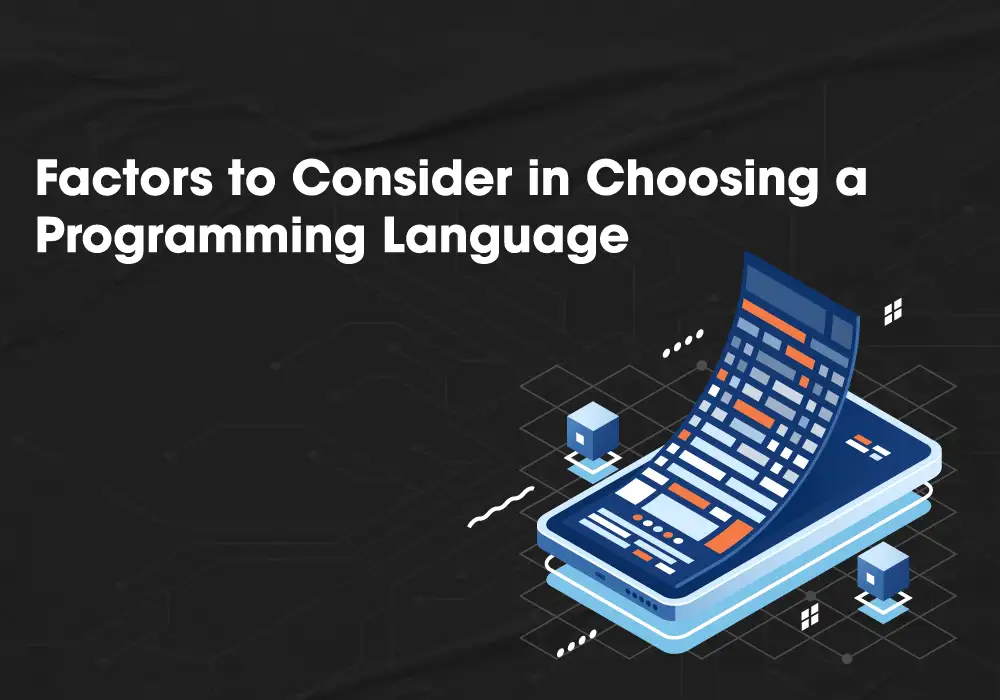
When choosing the best programming language for app development, you can consider factors like–
Project requirements
Tailor your language choice to your app's unique needs. Are you focusing on speed, scalability, or ease of maintenance? Understanding your project requirements is the first step to pinpointing the most suitable language.
Developer Expertise
Evaluate the skill set of your development team. Opting for a language they are familiar with can enhance efficiency and reduce the learning curve. It's all about playing to your team's strengths.
Platform Compatibility
Different platforms demand different languages. While cross-platform solutions offer versatility, native development ensures optimal performance. Consider your target audience and the platforms they use most frequently.
Community Support
A vibrant developer community can be a lifesaver when you encounter challenges. Choose a language with an active community that provides support, updates, and resources.
Scalability
Think long-term. Will your app grow in complexity and user base? Ensure your chosen language can scale seamlessly to accommodate future enhancements and increased demand.
Availability of libraries
The number of standard libraries can simplify and accelerate the language's data processing capability.
Cost Considerations
Factor in the costs associated with licensing, development tools, and potential third-party services. Assess whether the language aligns with your budget constraints without compromising on quality.
Security
Mobile apps handle sensitive user data, making security a paramount concern. Choose a language with robust security features and a good track record in addressing vulnerabilities.
Performance
Each language comes with its performance characteristics. Consider the speed and efficiency required for your app and select a language that aligns with those performance goals.
Most Used Language For Mobile App Development
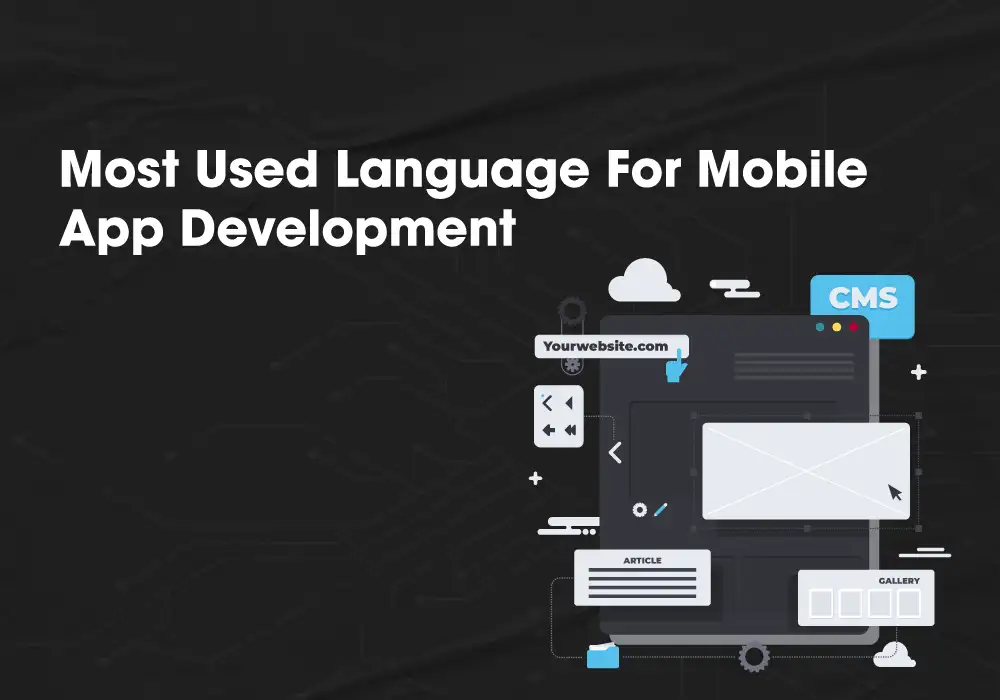
As we continue exploring the world of mobile app development, let's take a closer look at the most used languages for mobile app development.
Java
The official language for Android– used for creating cross-platform and corporate apps. Java has long been the go-to language for Android app development, offering reliability, scalability, and many libraries. Its versatility makes it a favorite among developers crafting applications for the Android ecosystem.
Swift
Swift has rapidly gained popularity as the language of choice for iOS development. Its clean syntax, speed, and safety features have positioned it as a robust language for building high-performance and user-friendly iOS applications.
JavaScript
JavaScript, with frameworks like React Native and Flutter, enables developers to create cross-platform apps efficiently. This approach allows for code reuse across different platforms, reducing development time and costs.
Kotlin
Kotlin, officially supported by Google for Android development, has gained traction due to its conciseness, interoperability with Java, and enhanced safety features. It offers a modern alternative for Android app developers.
C#
C# is often the language of choice if your mobile app involves gaming, especially when using the Unity game development engine. Its simplicity, performance, and extensive community support make it a powerhouse for game development.
Dart (Flutter)
Paired with the Flutter framework, Dart excels in creating visually appealing, natively compiled mobile, web, and desktop applications from a single codebase.
Android App Development
Regarding Android app development, two languages take center stage: Java and Kotlin. Let's explore the nuances of these languages and how they shape the Android development landscape.
Java
Versatility:
Java has long been the stalwart language for Android app development. Its versatility, extensive libraries, and platform independence make it an enduring choice for crafting robust and scalable Android applications.
Developer Familiarity:
Many developers are well-versed in Java, adding to its appeal. Existing Java codebases and a vast community contribute to a wealth of resources and support for Android development.
Kotlin
Seamless Interoperability:
Kotlin, introduced by JetBrains, is gaining traction rapidly as a modern alternative. Its interoperability with Java allows a smooth transition, making integrating Kotlin code into existing Java projects easy.
Conciseness and Readability:
Kotlin's concise syntax and enhanced readability provide a more enjoyable development experience. It reduces boilerplate code, resulting in cleaner and more maintainable codebases.
Choosing Between Java and Kotlin
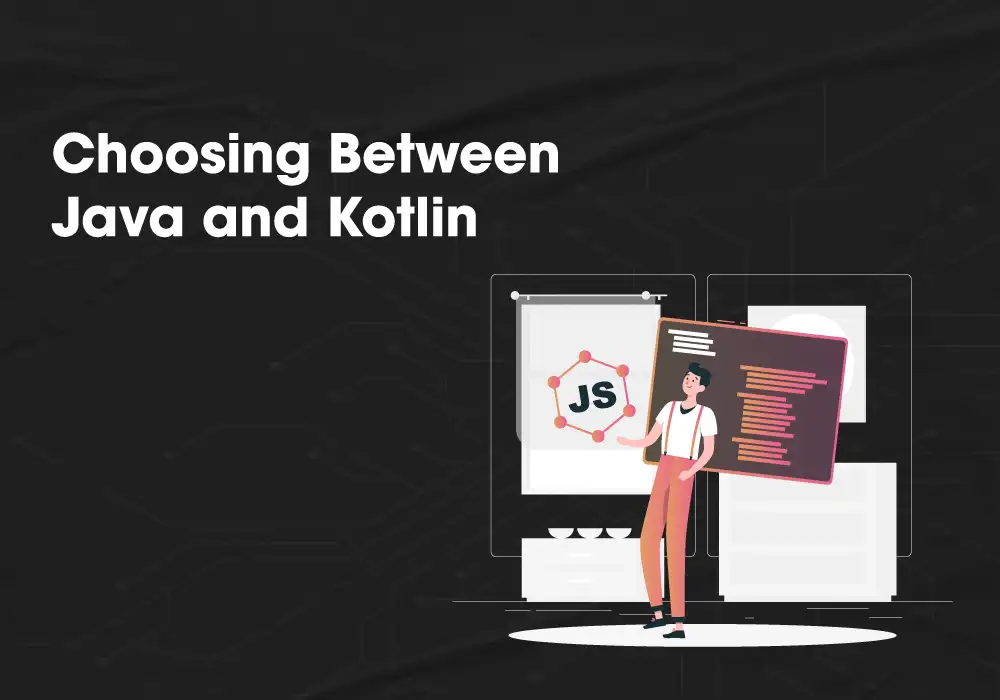
When deciding between Java and Kotlin for Android app development, consider factors like the project requirements, developer expertise, and your long-term goals. Both languages offer robust solutions, so your choice ultimately depends on your needs.
Cross-Platform Development
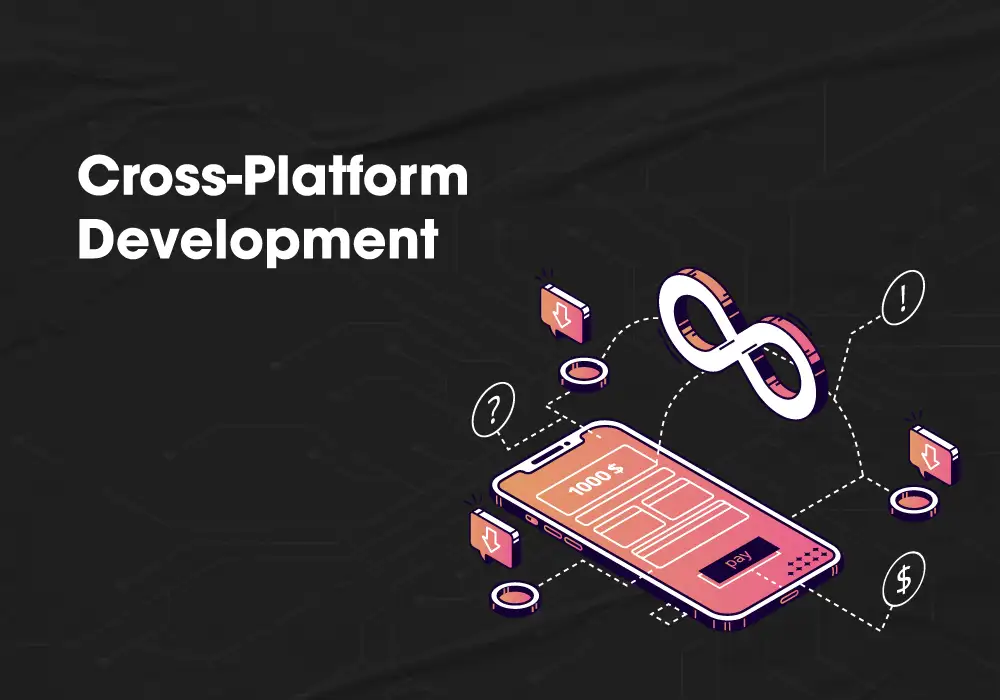
Cross-platform development has emerged as a compelling solution in the ever-evolving mobile app development landscape. This approach allows developers to create applications that run seamlessly on both iOS and Android devices, minimizing redundancy and maximizing efficiency.
JavaScript and React Native
Code Reusability:
JavaScript, a staple in web development, has transcended its boundaries into mobile app development with frameworks like React Native. Developers can write code once and deploy it on iOS and Android platforms, optimizing efficiency and reducing development time.
Native-Like Performance:
React Native leverages native components, ensuring a native-like performance and user experience. It's an excellent choice for projects where a balance between efficiency and a consistent user interface is paramount.
C# and Xamarin
Single Codebase:
Xamarin, powered by C#, enables developers to use a single codebase to create apps for both iOS and Android. This approach streamlines maintenance updates and ensures consistency across platforms.
Integration with Native APIs:
Xamarin allows seamless integration with native APIs, providing access to device-specific functionalities. This ensures developers can leverage platform-specific features while benefiting from a shared codebase.
Choosing the Right Cross-Platform Solution:
When considering cross-platform development, choosing JavaScript with React Native and C# with Xamarin often concerns developer expertise and project requirements. Both options offer efficient ways to create cross-platform apps while maintaining high performance and user satisfaction.
Conclusion
Choosing the right language is your compass in mobile app development. Whether crafting Android apps with Java or diving into cross-platform magic with JavaScript, the path is yours to explore.
Discover the possibilities with IBTI, your partner in global software development. Contact us today to turn your dreams into standout mobile applications. Your journey to success begins now!
FAQ
Is Python good for mobile app development?
Python is not typically used for native mobile app development, but it can be employed for cross-platform development using frameworks like Kivy or BeeWare. Its strength lies more in web development and data science applications.
Which language is best for hybrid app development?
JavaScript, coupled with frameworks like React Native or Flutter, is the best for hybrid app development. These frameworks allow developers to write code once and deploy it on both iOS and Android platforms.
What is the best language for mobile app game development?
The choice for mobile game development often leans towards languages like C# (Unity) or Swift (iOS) and Kotlin (Android) for native development. Unity with C# is a popular choice for cross-platform game development due to its versatility.

Marketing IBTI
#Marketing IBTIIBTI is a technology company that develops IT-as-a-service solutions and provides technical teams for software development. We have been working with IT services for over 12 years, developing software and mobile applications for clients throughout Brazil. In recent years, we have engaged in an internationalization process and started to serve foreign customers, always with a view to the quality of the service provided.